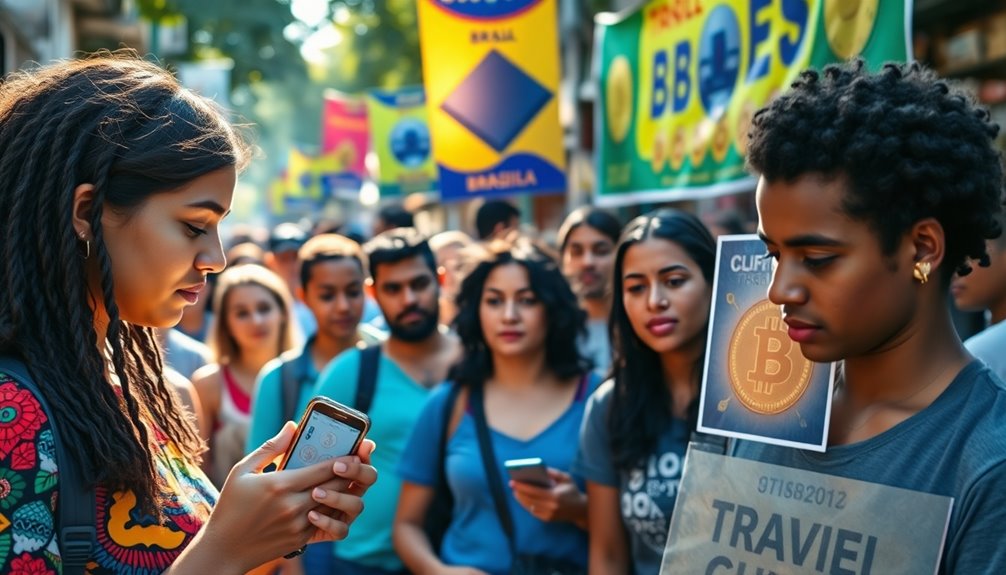You might find it intriguing that nearly 15% of Brazilians are contemplating a shift from traditional banking to crypto assets. This shift reflects a growing trend towards digital currencies, driven by the allure of better accessibility and potential financial gains. As stablecoins gain popularity, many are reconsidering their financial options. So, what factors are pushing this change, and how might it reshape the Brazilian financial landscape?

As Brazil's economy evolves, you might notice a remarkable shift toward crypto assets, especially stablecoins, which dominate about 90% of the country's crypto transactions. This trend is fueled by a growing interest among Brazilians, with recent YouGov findings suggesting that nearly 15% are considering swapping their traditional bank accounts for crypto assets. This wave of enthusiasm reflects a broader acceptance of digital currencies and highlights a desire for more accessible financial solutions.
The rapid growth of crypto adoption in Brazil points to a significant cultural shift. Stablecoins, in particular, have captured the attention of investors looking for stability amidst economic fluctuations. With inflation concerns looming, many people are turning to stablecoins as a hedge, allowing them to save and transact with greater confidence. In fact, Latin America experienced a 116% surge in crypto adoption in 2024, showcasing the region's growing enthusiasm for digital assets.
As you dive into this new landscape, you'll see that these digital assets provide a practical alternative to conventional banking, especially for those in underbanked regions.
These digital assets offer a viable solution for those seeking financial inclusion beyond traditional banking options.
You might be surprised to learn that Brazilian investors allocate a notable portion of their portfolios to crypto. Some bold individuals hold up to 35% of their assets in these digital currencies, while more conservative investors maintain around 7.25%. This diversification strategy not only helps mitigate risks but also positions them to take advantage of potential market gains.
A sense of urgency is palpable as many want to harness the benefits of crypto before upcoming regulations take effect in 2025. These regulations aim to enhance transparency and security within the crypto space. As Brazil prepares to implement anti-money laundering and know-your-customer requirements, it's essential for you to stay informed.
While these measures will provide a safer environment for investors, they could also introduce uncertainty, impacting your decisions about engaging with crypto assets.
The rise of digital platforms like Nubank and PicPay has further fueled interest in crypto by making it more accessible. These fintech innovations have opened doors for millions, especially those who previously lacked access to traditional banking services.
With retail interest in crypto growing at an impressive pace, it's clear that many Brazilians see the potential of digital currencies.











